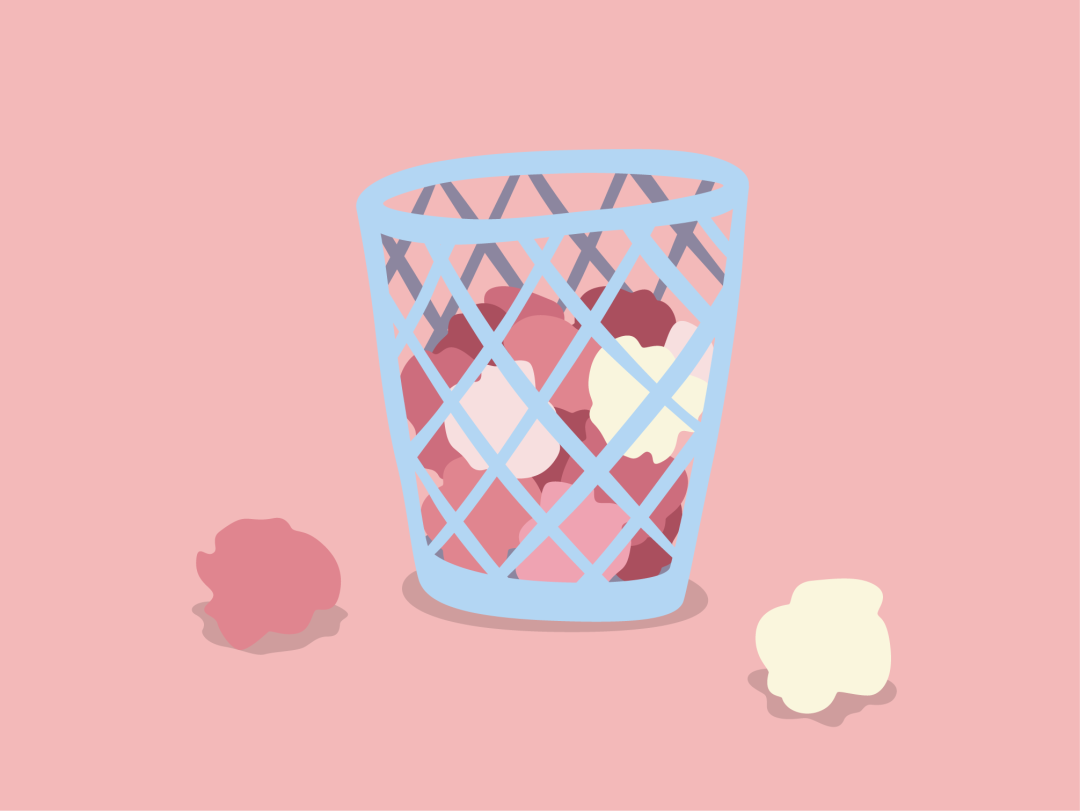Sign up to stay in the loop on new styles and sales!
Sign up to stay in the loop on new styles and sales!
#explainer
How Queer Women Can Practice Safe Sex
health
·5 min read

by Toni Brannagan | 06/13/2019
In the US, only 24 states + the District of Columbia mandate sex ed, but what actually goes into that curriculum is often left to individual districts. So even if your school does more than the bare minimum of grabbing a spare teacher to pull up some pics of STIs and throw condoms at you, it’s difficult to know the quality of your education.
And here’s the thing — we know that not every person with a vagina is a woman, but many sex ed classes in the U.S. have historically been segregated by gender. People who are grouped in with the girls are disproportionately affected by not-so-comprehensive sex ed, so I spoke to three queer women about their experiences, but all the advice to follow definitely also applies to anyone with a vagina, regardless of how you identify.
Especially for people questioning their sexuality in a heteronormative society, education is essential. One of the women I spoke to, Jesse, a 26-year-old video editor, says comprehensive sex ed might have even helped her come out earlier, “It may not have seemed so taboo in my head later on when I was exploring my own sexuality.”
Ariel, a 27-year-old teaching artist, feels representation is key to quality sex ed, “The more bodies we see, the more sexualities we recognize and the fewer binaries we enforce, the more chances we offer teenagers to explore and understand their identities without shame or stigma.”
Without a standard, it’s easy for certain topics to never be discussed at all. For one, female pleasure. When sex is taught as “well, don’t get pregnant,” pretty much all women suffer, but especially women who grow up to have (or are already having) sex where pregnancy isn’t a worry.
For example, Dani, a 26-year-old community engagement coordinator, went to a school where sex ed was taught, but it was abstinence only, and “included condoms as the only contraceptive.”
“No talk about choice, consent, kinds of sex you could have, the kind of people you could have it with, and ultimately a big F.U. to the discussion around personal pleasure and sexuality exploration.”
what constitutes “safe sex”?
Having unprotected sex with someone with a penis is also the easiest way to contract an STI or STD — gender isn’t tied to your genitalia, but queer women are still statistically at the least risk for STIs. Unfortunately, this often translates to the misguided belief that they don’t need to be educated about how to be safe or healthy at all.
Ariel elaborates, “Queer people aren't taught ways to protect themselves during sex, or even that queer sex exists, so it can feel isolating and sometimes dangerous.”
More specifically, the urgency of safe sex is not often communicated to queer women the way it is to heterosexuals and gay men. This leads to STIs going undiagnosed for long periods of time, and foregoing safe sex practices. Jesse told me that she hadn’t even heard there were “things” for protection between women until recently. But how are women supposed to protect their sexual health if they aren’t given the tools?
If it was as easy as establishing an inclusive, nationwide standard on sexual education, I would probably just write another blog about avoiding sharks on your period or something. Unfortunately, the issues with sex ed in this country are so widespread, queer women are rarely the focal point.
A Spark Notes version is never comparable to the real thing, but one of the only tangible things to do is share accurate information and practice open dialogue.
So, what are some ways to practice safe sex?
don’t skip annual gyno visits
Keeping your V healthy requires check-ups, including annual visits and bi-annual pap smears! It’s easy to feel like you can skip the doctor’s office when you’re part of the population that’s at lowest risk for STIs, but it’s still super important!
If you’re not comfortable asking questions or detailing your sexcapades to your gyno, you should go find a new one. Seriously. You don’t need to deal with anyone that doesn’t accept the way you live your life.
commit to safe oral sex
Dental dams, unfortunately, are not as accessible as condoms, which seem to be thrown around with reckless abandon. However, next time you pass the free condom bowl at your doctor’s/school/local bar, grab a couple to fashion into makeshift dental dams.
Another option, especially if you’re hooking up with a new partner, is saran wrap – although it’s important to note that it *must* be non-microwavable. Microwavable saran wrap is porous, so it can transmit particles of bacteria and viruses.
Also, if you’re an early-adopter type, you might wanna check out Lorals, which are undies designed for oral sex (what a time to be alive, amirite?).
clean your sex toys
Toys should be cleaned not only in between sexy timez, but also if you are switching between oral, anal, or vaginal penetration, as well as between partners. You don’t want to be mixing bacteria from those areas — it could lead to some not-so-great infections.
If running to the bathroom sink in medias res sounds annoying, you can use condoms, which are quickly and easily replaceable.
keep your nails trimmed
This might seem more like a courtesy than a safety tip, but scratching the inside of someone’s vulva or vagina is no joke. Even if you don’t *feel* hurt, small cuts and scrapes can become irritated or infected, so go get yourself a manicure — or stock a box of nitrile gloves (less irritating than latex) at your bedside.
communicate with your partner(s)
Keeping open channels of dialogue with the people you’re sleeping with is important for everyone, of every sexual orientation. Making your likes, dislikes, and limits clear (and knowing your partner’s as well!) is the first step to making sure your sexual experiences are safe and enjoyable!
And, of course, you should get tested regularly – and make sure your partner(s) are following suit!
Can you think of any ways your sex ed classes in school fell short? How could they have been more inclusive? Share your thoughts with us in the comments!
Toni Brannagan is a writer and was the former Copy and Content Manager at Thinx.
by Toni Brannagan


